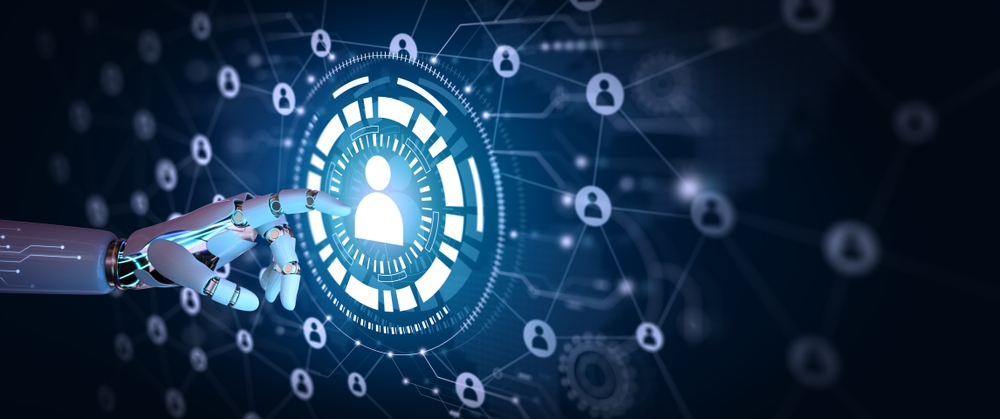Artificial Intelligence in Recruitment: Boon or Bane?

The advent of artificial intelligence (AI) has ushered in a new era in many sectors, and the recruitment landscape is no exception. AI integration offers remarkable potential to revolutionize hiring processes, making them faster and more precise. Still, with great technological advancements come significant challenges, particularly concerning biases and diversity concerns. We’re diving into the intricacies of AI in recruitment, examining its enhanced efficiency and precision against the risks of reinforcing existing inequalities and narrowing workforce diversity.
Enhanced efficiency and precision in recruitment
Traditional hiring processes can be slow and cumbersome, often involving tedious scanning through stacks of resumes. This manual screening and evaluation consumes valuable time and resources. AI integration is reshaping recruitment by addressing these inefficiencies in several areas:
- Resume screening and parsing: By swiftly analyzing and extracting relevant information from resumes, AI streamlines the initial screening process — typically a time-consuming task prone to human error. This not only accelerates the identification of potential candidates but also ensures a more objective and consistent evaluation.
- Predictive analytical functionality: Going beyond conventional attributes, AI screening can discern patterns and identify the most suitable candidates based on an extensive list of metrics. This highly comprehensive approach enhances the precision of candidate selection, minimizing the likelihood of overlooking exceptional talent.
- Automation of repetitive tasks: Liberating recruiters from repetitive clerical activities enables human resources to redirect their focus to broader talent development, reducing time-to-hire rates, overall recruitment costs, and even turnover rates in some cases.
While these are the headlining improvements recruiters can look forward to, they are by no means comprehensive. By enhancing the overall efficiency and precision of talent-sourcing processes, each benefit unlocks additional business gains: stronger team alignment, more budgetary slack, and more time for the human interactions comprising positive workplace culture.

Bias and diversity concerns in AI recruitment
While the integration of AI in recruitment has been transformative, these upgrades have brought forth critical concerns regarding bias and diversity. One major challenge lies in the inherent biases AI systems might inherit from the historical data used to train them. If historical datasets contain any biases, unconscious or otherwise, AI algorithms will inadvertently perpetuate them, increasing inequalities in hiring processes.
At the same time, the lack of transparency in AI decision-making processes is proving difficult to navigate. Unlike human decision-making, where the rationale behind a choice can often be explained, AI algorithms operate as complex systems, making it challenging to pinpoint and rectify root causes of biased outcomes.
Biased AI algorithms can contribute to the underrepresentation of certain demographics, especially if historical data reflects workforce disparities. The algorithm will likely learn to replicate these imbalances, resulting in the continued underrepresentation of specific groups. This unintended consequence highlights the importance of human oversight and continued efforts to refine algorithms.
Strategic AI integration for executive search in private equity
AI integration in private equity leadership recruitment marks a paradigm shift in talent acquisition by introducing enhanced precision beyond traditional metrics.
By analyzing extensive datasets, AI enables a more nuanced evaluation across skills, experiences, and qualifications. This methodology ensures a more comprehensive and objective assessment, identifying top-tier candidates who align more closely with leadership requirements.
AI also assists in building stronger talent pipelines, proactively identifying future leaders aligned with long-term organizational goals. This allows organizations to strategically develop internal talent, maintaining and continuously improving leadership well prepared to guide the organization through future challenges and opportunities.
While AI brings unparalleled advantages to leadership recruitment, it still requires human involvement to overcome potential biases. Human judgment, ethical considerations, and an understanding of the organizational culture are essential elements of recruitment. AI can enhance them, but it can’t replace them. Comprehensive, fair, and effective recruitment for private equity leadership still calls for a collaborative relationship between technology and human expertise.

Navigate AI recruitment with hireneXus
Considering the advancements and challenges of AI-enhanced recruitment, one fact remains clear: The future lies in the harmonious integration of technology and human judgment. While AI offers unparalleled speed and analytical depth in processing vast datasets and aligning candidate skills with evolving job requirements, the human element is irreplaceable in ensuring fairness and ethical outcomes. Ultimately, organizations must focus on developing transparent and accountable AI tools, ensuring they complement rather than compromise the values of diversity and equal opportunity.
As we navigate this new era, the continued evolution of AI in recruitment must be guided by a deep understanding of — and commitment to — hiring as a human experience.
